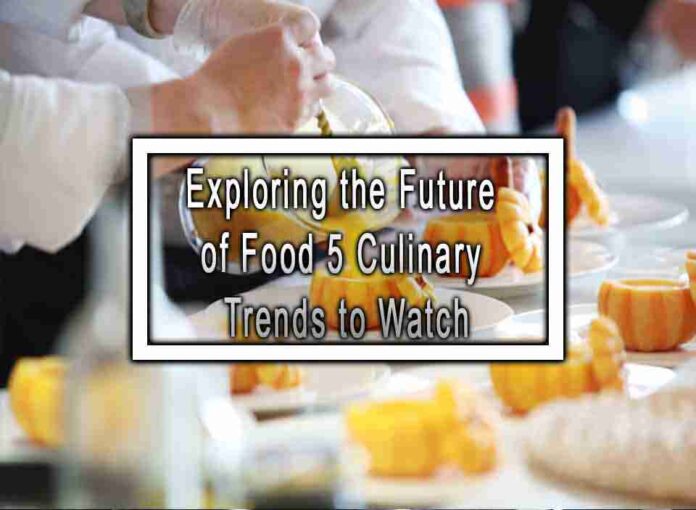The future of food is constantly evolving, driven by innovations in technology, sustainability, and changing consumer preferences. Here are five culinary trends to watch:
1. Plant-Based and Alternative Proteins:
As concerns about sustainability and health grow, the demand for plant-based and alternative protein sources continues to rise. Beyond meat and dairy substitutes, innovations like lab-grown meat and insect-based foods are gaining attention for their potential to reduce environmental impact and provide protein-rich options.
2. Sustainable and Locally Sourced Ingredients:
Consumers are becoming more conscious of the environmental impact of their food choices. This has led to a focus on sourcing ingredients locally to reduce carbon footprints and support local economies. Sustainable practices, such as reducing food waste and embracing regenerative agriculture, are also gaining traction.
3. Personalized and Functional Foods:
Advancements in nutrition science and technology are enabling the creation of personalized diets and functional foods tailored to individuals’ unique health needs and preferences. These foods can target specific health concerns, such as allergies, intolerances, or chronic conditions, offering a new level of customization.
4. Food Tech and Smart Kitchens:
Technology is transforming how we prepare, cook, and consume food. Smart kitchen appliances, such as connected ovens and precision cookers, are making cooking more convenient and precise. Food delivery apps, meal kits, and AI-driven recipe recommendations are also reshaping how we access and interact with food.

5. Global Fusion and Experiential Dining:
Culinary boundaries are blurring as chefs and home cooks experiment with global flavors and fusion cuisines. Experiential dining, which offers immersive and multisensory dining experiences, is becoming increasingly popular. This includes pop-up restaurants, themed dining events, and interactive food experiences.
These trends represent just a glimpse of the exciting developments shaping the future of food. As technology, sustainability, and consumer preferences continue to evolve, the culinary landscape is likely to undergo significant transformations, creating new opportunities for creativity and innovation in the food industry.











